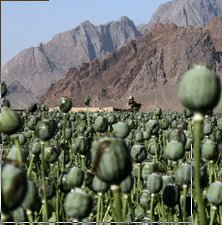Ying Su Ke

  | Ying Su Ke in TCM:Explore the properties of Ying Su Ke according to Chinese
Nutrition and Traditional Chinese Medicine (TCM):
Factoids:
English Name: opium shells, opium husks
Pharmacuetical Name: Pericarpium Papaveris
Properties: sour, astringent, neutral
Temperature: neutral
Channels: LU, LI, KD
Flavors: astringent, sour
Special Properties:
essence, alleviates bi syndrome
Alternate Forms:
- sheng or cu zhi - diarrhea and pain
- mi zhi - for cough
Actions / Indications:
- Contains leakage of LU qi; stops cough (chronic cough
due to LU deficiency)
- Binds up large intestine; stops diarrhea (chronic
diarrhea with pain or dysenteric disorders)
- Relieves Pain (any kind of pain of sinews and bones,
epigastric pain, abdominal pain)
- Stabilizes lower burner (vaginal discharge; spermatorrhea)
- (cc: pregnancy contraindication)
- (cc: acute dysenteric disorders or acute cough)
- (cc: caution with lactating mothers, infants, or hypothyroidism)
- (cc: not for long term usage, may be addictive)
Special Notes:
- Yan Hu Suo may be used as a substitute
since Ying Su Ke may not be available in many countries.
Disclaimer: In accordance with our terms of service, by using this web site you agree that none of the information found on this web site constitutes medical advice. You should always consult your doctor before trying any particular food or herbal remedy to treat disease.
Folk remedies presented on this site are designed to address specifc TCM diagnoses, and are not one-size-fits-all. If you would like to learn more about Traditional Chinese Medicine (TCM) and how it relates to Chinese Nutrition, you can book in a free call with a licensed professional. There is no obligation to purchase.
[CLICK HERE for your free INITIAL CONSULTATION] |

